Today’s readings
I love what Jesus says to Peter after Peter initially refuses to have his feet washed. “What I am doing you do not understand now, but you will understand later.” I kind of feel like that’s what could be said about the entirety of our faith. What we are taught very rarely makes sense at the first presentation, but later, when we have eyes opened up by the Resurrection, well, then things start to fall into place.
So I want to start my reflection on these three holy days, this Sacred Paschal Triduum, with the incredibly scandalous idea that is the Holy Cross. The Church would have us do so, too, for She provides just one entrance antiphon for these three days, and that comes at the beginning of today’s Mass, and it says:
We should glory in the Cross of our Lord Jesus Christ,
in whom is our salvation, life and resurrection,
through whom we are saved and delivered.
This antiphon is adapted from Saint Paul’s letter to the Galatians (6:14) in which he spends most of the letter chastising the community – even to the point of calling them “stupid” (3:1) – for taking their eyes off Jesus and the Gospel and everything that Saint Paul has taught them, and instead looking back to the Jewish law and all its artificial marks of righteousness. But we dare not condemn them so quickly. Because, quite frankly, we have to understand their faltering faith in light of our own.
For us, now removed a couple of thousand years past the Crucifixion of our Lord, the Cross seems pretty standard – it almost doesn’t even phase us any more. We see it in church, we probably have one or more in our homes, and we might even wear one around our neck pretty often. And so, I think, the Cross may have lost some of its very important impact: an impact Jesus’ disciples certainly experienced as they fled in fear. It’s an impact Saint Paul’s Church in Galatia would have experienced too, and perhaps explained their trying to find justification in other ways.
Because the cross was terrifying. And not only that, the cross was scandalous. It was saved for the dregs of society, for the worst of the worst. For those who were a problem for society. It was saved for the likes of Barabbas, for heaven’s sake! And the unrepentant thief. And yet, that is where our Lord went at the end of his life on earth. Nobody in Jesus’ day would have been inspired by this awful display. Saint Paul acknowledges as much in his first letter to the Corinthians when he says, “But we proclaim Christ crucified, a stumbling block to Jews and foolishness to Gentiles” (1:23).
But if people in that day missed the importance of Jesus embracing and dying on the cross, then they missed his entire message too. Because it was every bit as scandalous that Jesus ate with sinners and touched lepers. Just as scandalous as the cross was his getting up at supper and taking off his outer garments, tying a towel around his waist, and washing the feet of the disciples. That was the job of a servant, but then he did come to serve not to be served. That was the job of a slave, but then he did come to set us free from our ancient sinfulness.
As scandalous as the Cross was for the early Church, it is also deeply problematic for the Church today. Because we live in a society that values freedom, convenience, and bright shiny happiness – none of which, I dare say, you’ll find on the Cross. In our society, we might boast that there is a pill for almost every ailment, even if they come with a horrifying list of side-effects. In our society, we have convenience down to a science: we eat fast food, we bank and shop online and delight in free overnight shipping, we lose our minds in the line at the DMV. In our society, we do our best to spin every situation into some kind of false happiness, with painted smiles and happy music and all kinds of glitzy advertising.
We’re more than happy to have a Resurrection, thank you, but the Cross … well that’s just not something we’re open to embracing. And the problem with that is that living the Gospel requires that we take up our own crosses and follow our Lord (Matthew 16:24). So our aversion to the Cross, both in the ancient Church and now, is a real obstacle to our life of faith, a real obstacle to our eternity.
The cause of the obstacle, I would assert – at least in my own spiritual life – is that on the Cross, we see our own sins. The real scandalous part of the Cross for us is that our Savior had to go there to free us from our sins. What makes us turn our heads away and avert our gaze is that we can’t bear to see that even our smallest sins have such horrible, scandalous consequences. The real scandal of the Cross is that the Word made flesh had to give up his own life in such a terrible death in order that I might live.
What on earth are we supposed to do with that? How do we live with the fact that God’s only begotten Son died for us? Well, he tells us in today’s Gospel. “I have given you a model to follow, so that as I have done for you, you should also do.” And he’s not just talking about washing feet, dear Brothers and Sisters in Christ. Whatever he’s done for us, we’re supposed to do for others. If he’s forgiven us much, then we should never stop forgiving. If he has served us, then we have to serve others. If he has laid down our life for us, then we better do the same for the people in our lives. Anything less is an offense against the Holy Cross.
As we gather on this Holy Thursday night, we know that the washing of the feet is a mere foreshadowing of the Cross. Jesus came to give himself completely so that we might have life. He washes feet, cleansing the disciples of their sins and making them fit for service. He offers his Body and Blood to be the food that sustains us on our journey. And he offers us our own crosses that we might have a share in his own, leading us onward to eternal life.
We should glory in the Cross of our Lord Jesus Christ,
in whom is our salvation, life and resurrection,
through whom we are saved and delivered.

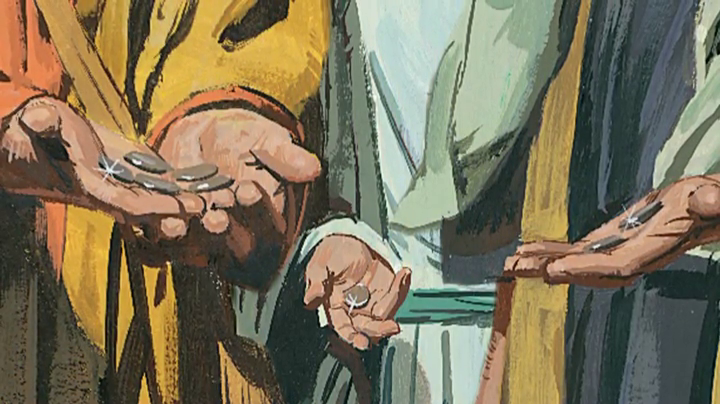

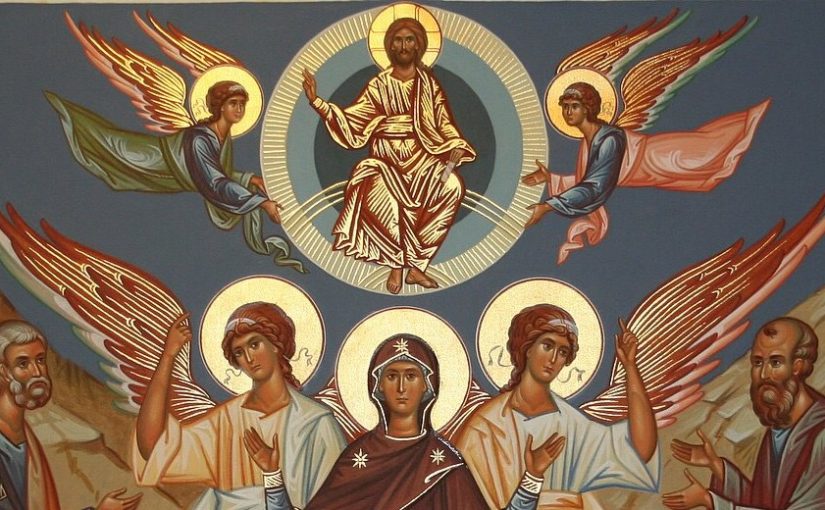
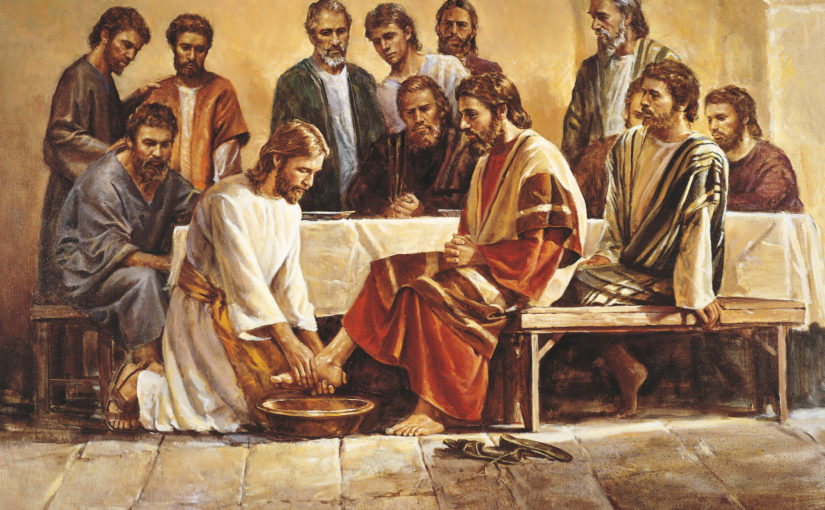
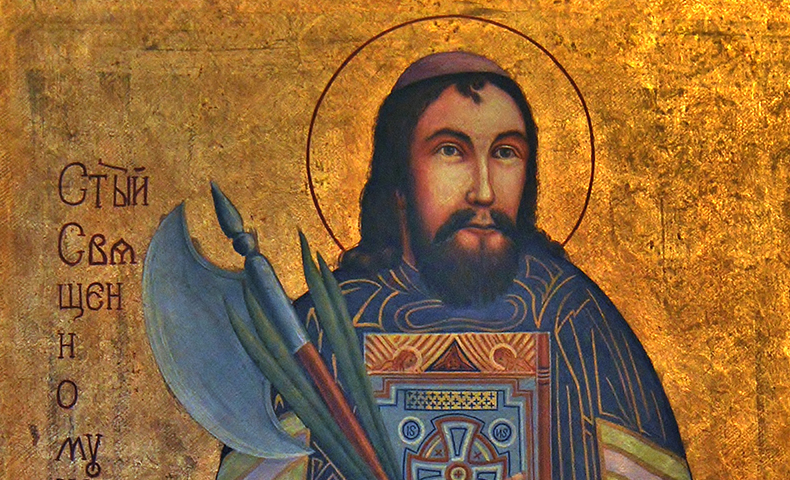
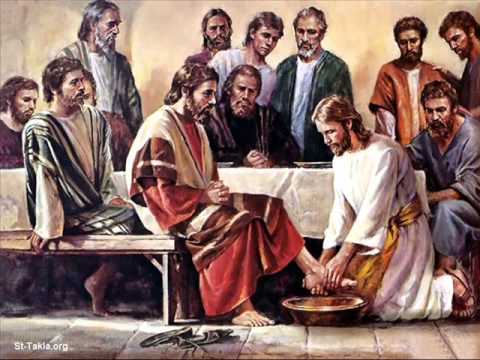


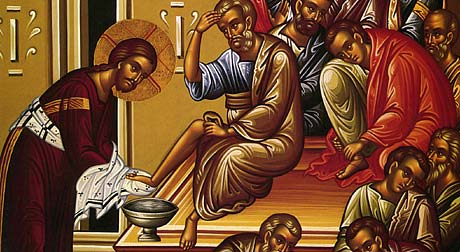
You must be logged in to post a comment.